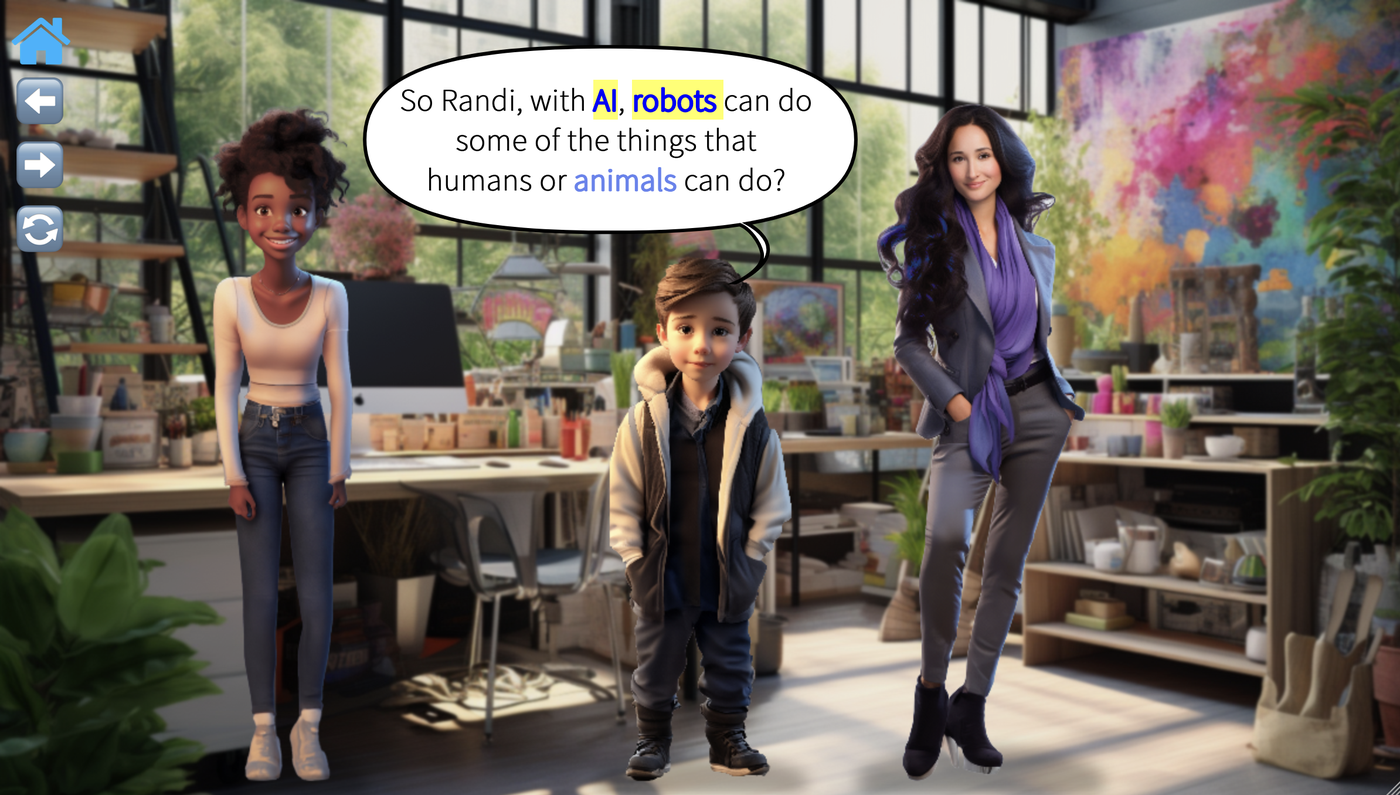

on going research project, Personal Robots Group at MIT Media Lab under Cynthia Breazeal
special thanks to Isabella (Project Lead), Maya, Parker, Jon, Jonathan, Jimmy, and others for being my debugging heroes.
At the intersection of artificial intelligence (AI), education, and creativity, my work focuses on empowering young students with the foundational knowledge of AI and coding through engaging, interactive storybooks. This project, part of the Personal Robots Group at MIT’s Media Lab, uses storytelling, coding, and robot interactions to teach early AI literacy to children in grades K-3.
In today’s world, kids are surrounded by AI-powered devices—tablets, smartphones, and even social media. But despite their exposure to AI-generated content, there’s a lack of resources tailored to young learners, especially in primary education. That’s where our project steps in. We're building a series of online interactive storybooks that introduce young learners to AI, machine learning (ML), robotics, and coding in a fun and approachable way.


The storybooks center around Doodlebot, a robot with dreams of becoming an artist. Through a series of ten books, students follow Doodlebot’s journey as they help it learn new skills, such as dancing, reading, and even creating art. These skills are introduced through simple coding and machine learning principles.
Each book presents a new AI or robotics concept, with minigames and interactive dialogue that allow students to engage with the content actively. By helping Doodlebot, students gain hands-on experience with the basics of coding, robotics, AI ethics, and more.
To make these lessons even more immersive, the books are paired with social robot interactions. These robots follow the student's usage of the storybooks, helping to reinforce key lessons and giving children a chance to code directly with the robot. The robots ask students questions, offer feedback, and guide them through creative activities.
The importance of teaching children about AI is clear: As technology becomes an integral part of their lives, it's vital they develop informed opinions and understanding. By learning about AI early on, kids are better equipped to navigate its presence in the world around them. But more importantly, they gain agency—they understand not just how AI works, but how they can use it creatively and responsibly.
We’ve conducted pilot studies with nearly 50 students at Boston’s STEAM Ahead Academy and iterated on our designs through comments from participants at the Boston Museum of Science. The feedback has been invaluable, showing that the storybooks successfully engage and educate students in grades 1-3.
As we continue to refine the project, we plan to conduct a full-scale study in 2025, collaborating with local and global educational organizations to ensure the tools are both effective and scalable. Our goal is to make AI education accessible to all students and provide teachers with the resources they need to introduce AI and robotics in the classroom.
